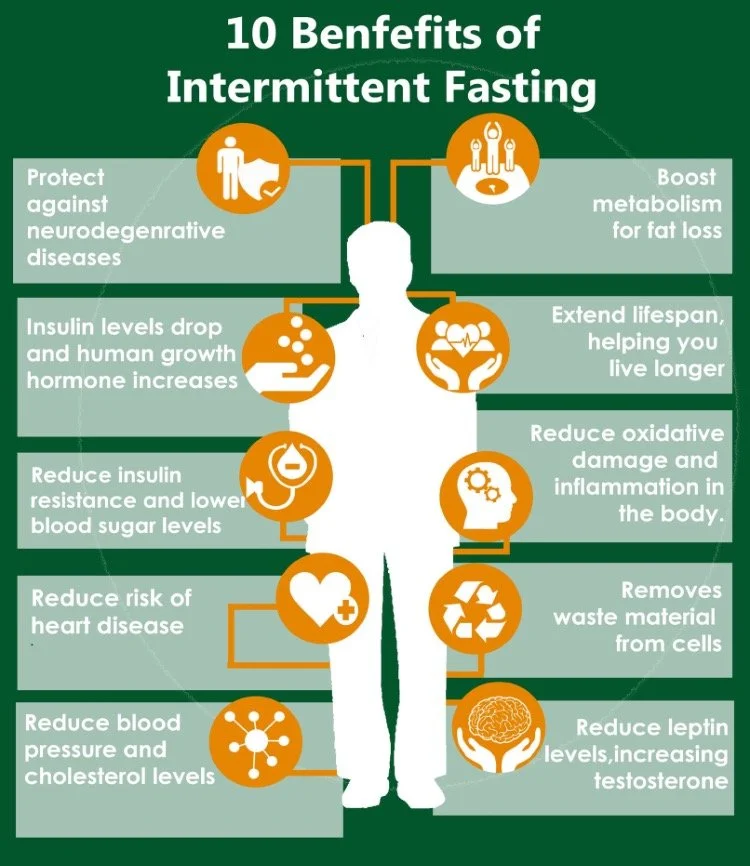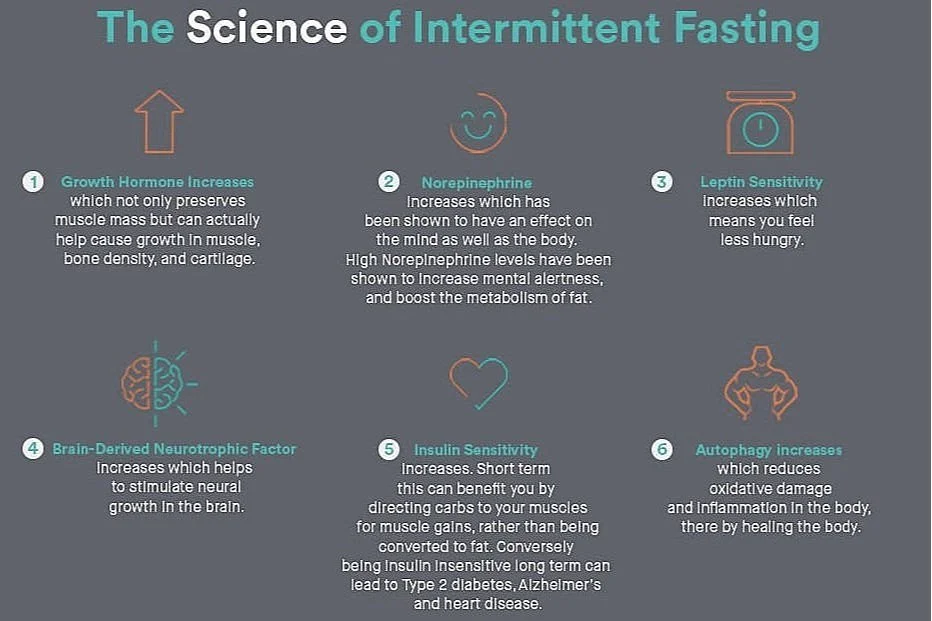Intermittent Fasting (IF)
Intermittent fasting is an eating pattern that cycles between periods of fasting and eating. It isn’t a “which foods you should eat diet” but rather when you eat them. It is not a diet in the traditional sense but more accurately described as an eating pattern.
Common intermittent fasting methods:
The 16/8 method: Also called the Leangains protocol, it includes skipping breakfast and limiting your daily eating period to 8 hours, like 1–9 p.m. Then you fast for 16 hours in between. Many people find the 16/8 method to be the simplest, most workable, and easiest to stick to. It’s also the most popular.
Eat-Stop-Eat: This means fasting for 24 hours, once or twice a week, for example by not eating from dinner one day until dinner the next day.
The 5:2 diet: With this method, you consume only 500–600 calories on two non-consecutive days of the week but eat normally the other 5 days.
Intermittent Fasting has many benefits for the body. Here are some explained in depth:
Heart health: May reduce “bad” LDL cholesterol, blood triglycerides, inflammatory markers, blood sugar and insulin resistance which are all risk factors for heart disease.
Brain health: It increases the brain hormone BDNF and may aid the growth of new nerve cells. It may also protect against Alzheimer’s disease.
Weight loss: Can help you lose weight and belly fat, without having to consciously restrict calories.
Insulin resistance: Can reduce insulin resistance, lowering blood sugar by 3–6% and fasting insulin levels by 20–31%, which should protect against type 2 diabetes.
Inflammation: Some studies show decreases in markers of inflammation, a key factor to many chronic diseases.
Makes Your Healthy Lifestyle Simpler
Eating healthy is simple, but it can be incredibly hard to maintain. One of the main obstacles is all the work required to plan for and cook healthy meals. Intermittent fasting can make things easier, as you do not need to plan, cook, or clean up after as many meals as before. For this reason, intermittent fasting is very popular among the life-hacking crowd, as it improves your health while simplifying your life at the same time. One of the major benefits of intermittent fasting is that it makes healthy eating simpler. There are fewer meals you need to prepare, cook, and clean up after.
Safety and Side Effects
Hunger is the main side effect of intermittent fasting. It can take some time for your body to adapt to the new meal schedule. If you have a medical condition, you should consult with your doctor before trying intermittent fasting. This goes for any diet. Talk to your doctor to make sure you are perfectly healthy, and your body can take on a change in diet. Intermittent fasting has an outstanding safety profile. There is nothing dangerous about not eating for a while if you are healthy and well-nourished overall.


